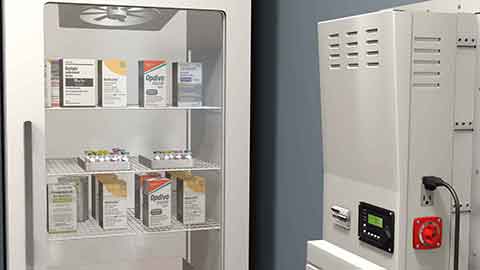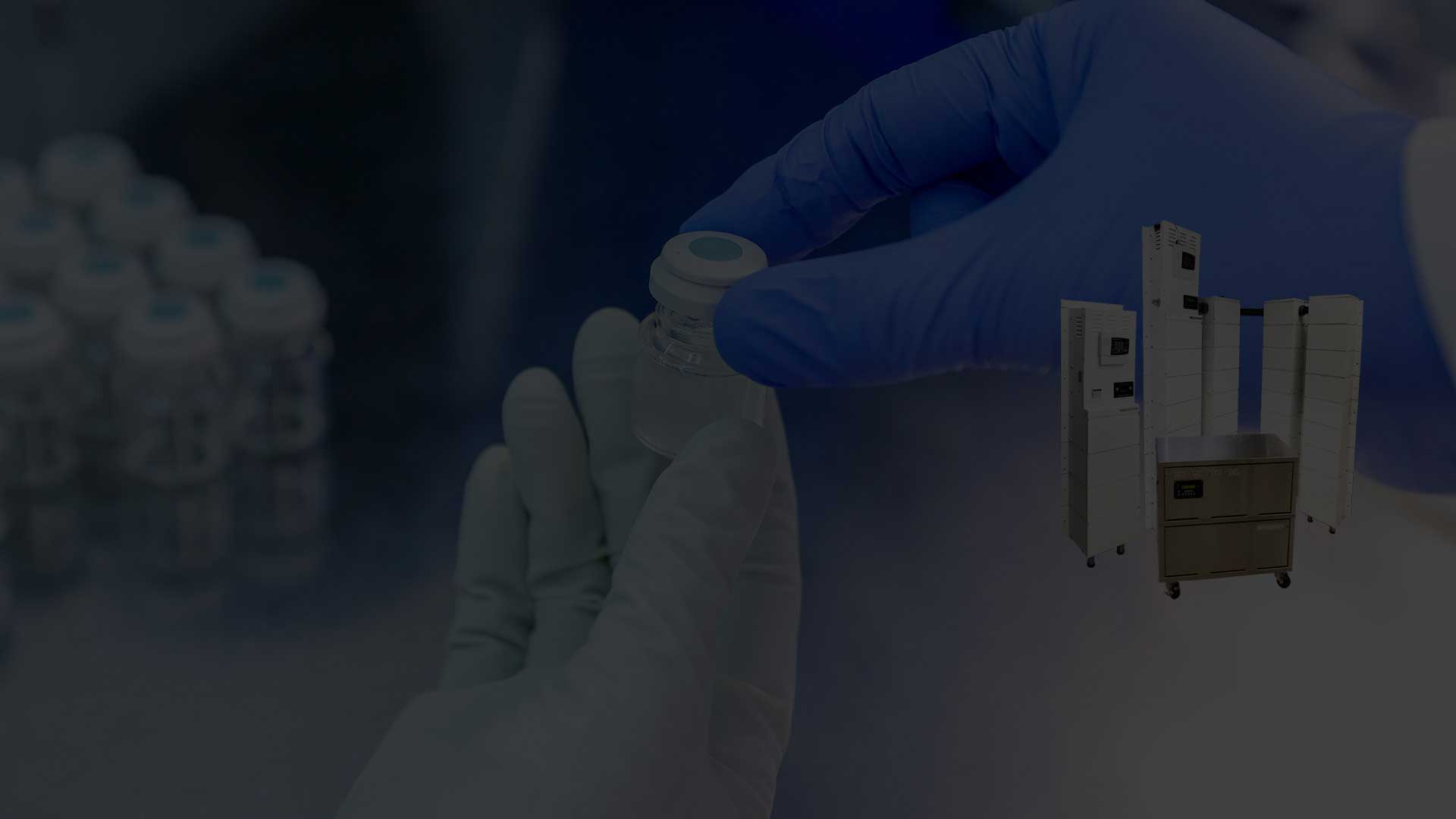4 Best Practices When Using a Pharmaceutical Refrigerator
Pharmaceutical grade refrigerators play a vital role in every medical facility. They are purpose built to aid in the proper storage of vaccines, medication and valuable biomedical materials. The affects not only healthcare facilities, but laboratories as well. For many, their most important role is providing a safe vaccine storage by keeping "the cold chain".
What is "the cold chain"?
How do pharmaceutical refrigerators help maintain proper cold chain procedures?
What are the best practices for using a pharmaceutical/medical-grade refrigerator for storage?
In order to get the most out of your cold storage solution, let's first dive into...
Cold Chain Management
The "cold chain" is a set of controlled temperature environments that help to store, manage, and transport vaccines and medications. It preserves the quality of these products from production through to transportation, distribution, storage, and retail.
The process typically begins with the manufacturer’s temperature controlled production processes and supply chain. They will then ensure the medication retains its proper temperature as it makes its way to the distributor. Finally, the pharmacy or health care facility where it will be administered to patients.
The most common way manufacturers and distributors maintain a proper temperature throughout the handling process is through the use of refrigerated trucks and planes. Additionally, manufacturers frequently ship their products inside of insulated boxes.
Cold chain preservation is very important, because if medications and vaccines are exposed to too high or too low temperatures their effectiveness is reduced. Unfortunately, this lost potency cannot be regained or restored. So if a vaccine or medication loses its potency, it cannot be used.
CDC Recommendations For Pharmaceutical Refrigerators
The CDC recommends a storage temperature range between 2°C and 8°C for vaccines. On the other hand, the temperature may vary based on the type of medication being stored for drugs.
However, for a refrigerator to qualify as a pharmaceutical refrigerator, it must be able to produce and maintain diverse temperature ranges. This way, you can easily set them to meet the requirements of individual shipments.
In addition, a pharmaceutical refrigerator must be able to meet much tighter temperature standards than regular household or mini refrigerators. Typically, they must be able to attain and maintain a stable temperature of between 2°C and 8°C (36°F and 46°F).
You can set the temperature between the lowest and highest storage temperatures at the midway point. This way, you can compensate for the occasional opening of the refrigerator door for access.
However, you must always ensure that the temperature you choose meets the requirements of the medications or materials you are storing.
Choosing the right pharmaceutical refrigerator for your facility is a very crucial task. To help, we have created a list of the best pharmaceutical refrigerator brands if you're looking to buy one today.
For those who have already acquired fridges that meet CDC /NSF456 Standards, here are four ways to get the best out of it:
1) Store Only Medical Inventory in Refrigerators
The purpose of pharmaceutical refrigerators is to store drugs, reagents, vaccines, biological products, and valuable medicines. Thus, it would be best not to store anything that does not fall in the above category, such as food, drinks, and personal belongings.
By limiting the number of items in the refrigerator to medications and vaccines, you reduce the amount of traffic to the fridge. This means staff will not open the door unless they need to retrieve specific drugs or vaccines. As a result, you are keeping your cold storage intact by avoiding potential temperature excursions.
A temperature excursion happens when the temperature of any medical refrigerator exceeds the recommended range. Best practices dictate that you open the doors of the fridges for as short a time as possible in order to avoid warming the air inside, and therefore the contents as well.
2) Perform Regular Commercial Refrigerator Maintenance
You may designate specific personnel or shifts to handle this aspect. Their job will be to clean, disinfect, defrost, inspect and sort items in the unit, and they are to do so regularly. They must ensure that the unit is neat and things in it are placed in an orderly manner.
The team should clean the refrigerator every day and wipe and disinfect it every week using 500mg/L chlorine disinfectant to clean and disinfect monthly. In addition, they should defrost once a month and record the thickness of the frost. In an ideal situation, the frost thickness should not exceed 1cm. If there is a variation from this, it is a clear indicator of a problem.
To aid with the defrosting, many newer more premium models have the addition
3) Install a Temperature Data Logger
The CDC recommends that you record the minimum and maximum temperatures reached every day. Once at the beginning of work and once at the close of work.
For better monitoring, use a data logger. The CDC recommends using a digital data logger (DDL) to record the highest and lowest temperatures reached in your unit. Digital data loggers also come with alarm systems that will alert you if there is a temperature excursion.
4) Utilize a Refrigerator Battery Backup System
Installing battery backup systems is an excellent way to forestall power outages in your pharmaceutical refrigerators. They provide better value for your money than a comparable fuel-powered generator, while also allowing greater flexibility and runtime than a specialty appliance with a built-in power supply because you can power multiple appliances at once.
Because of the unexpected nature of power outages, battery backup power systems are becoming more popular for health care facilities. protection from a power outage can help their medical cold storage needs by making sure refrigerators, freezers and their compressors continue to run and stay cold for as much time as you need.
Medi-Products have 30 year of experience working with medical equipment and medical practices. We understand the challenges the average health care facility faces when searching for a suitable uninterruptible power supply to support their cold storage needs.
Medi-Products has a unique combination of experience in both medical repair background and 30 years of backup power experience. The end result is that we can provide your practice with customized solutions for your cold storage needs such as the above.


